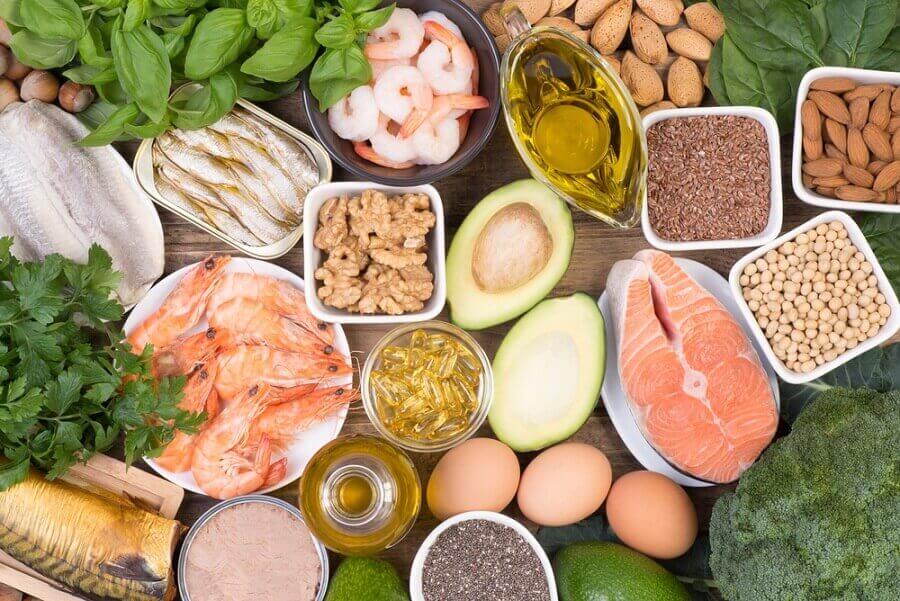5 Things You Can Do to Reduce Your Fat Mass


Reviewed and approved by Doctor Carlos Fabián Avila
Are you trying to lose weight but seeing little results? Have you thought about what you’re doing wrong? In today’s post, we’ll clue you in on some tricks for reducing your fat mass.
Remember that some of your daily habits might have a bigger effect on your weight than you might think. However, reaching your goal weight doesn’t have anything to do with super strict, unhealthy diets.
Check out the list below and make the necessary changes to your lifestyle. You’ll see your size shrink as you prevent your body from accumulating more fat.
Natural Ways to Reduce Your Fat Mass
1. Avoid restrictive diets
Wherever you look, there are always diets promising weight loss in a few days. While they can work in short period of time, they can’t help keep your body from accumulating fat mass.
In fact, you might even find yourself even more overweight than you were when you started the diet. This might happen because your body notices that it’s not being properly nourished and starts to protect itself.
In other words, if you stop eating, your body will try to store fat to meet your energy needs. Remember carbohydrates and fat alike provide your body with energy so that you can take care of your daily activities.
The best thing you can do is eat several small portions throughout the day. By doing so, your body will know that it’s sufficiently receiving the nutrients that it needs and won’t accumulate fat.
2. Opt for natural foods that aren’t heavily processed

Another trick for helping reduce your fat mass is eating as naturally as possible.
Take a moment to think about how processed foods have been prepared with fats, sweeteners and chemicals that stack up the calories. When you don’t burn these calories quickly, they turn into fat that builds up in your body.
To prevent that from happening, try to eat natural foods. For example, instead of drinking commercial juices, opt for the fruit itself or make the juice yourself at home.
You might be interested in:
Four Foods That You Should Avoid in Any Diet to Lose Weight
3. Start your day with a nutritious breakfast
It’s been proven that people who eat breakfast everyday have less problems with weight gain in addition to more success with preventing fat accumulation. This goes hand in hand with the first point.
When you start your day, your body needs nutrients, fiber and energy to go about daily life. However, if you choose to skip breakfast, or have an unhealthy breakfast, your body starts to store fat.
Ideally, your breakfast should include the three macro-nutrients: healthy fats, protein and carbohydrates. By doing so, you’ll obtain your nutrients and your body will be ready to face the day.
4. Choose your dressings wisely

Another trick for reducing fat mass that your body accumulates is avoiding the dressings, or condiments, that add saturated or unhealthy fats to your diet. Instead of using commercial products on your salads, make your own lighter ones with high-quality fats at home.
You can try vinaigrette, mustard or making your own mayonnaise at home. It might seem like a lot of effort at first, but your body will be storing less fat in no time.
In addition, when you make your own dressings, you can add natural, high-quality fats that won’t make you gain weight. The best part is that they keep your heart and arteries healthy. Some of the best options are avocado, coconut and extra-virgin olive oil.
You can also check out:
Eating Quinoa to Lose Weight: What Are the Benefits?
5. Opt for spray oils or vegetable oils
Do you usually cook with butter or margarine? Sure, it’s true that they make food delicious. But the problem is that they’re not helpful for reducing the amount of fat that our body accumulates.
We suggest using spray-oils. These oils really can reduce your oil usage because a small amount goes a long way.
Alternatively, you can use vegetable oils. However, you still might risk overdoing it. In any case, if you want to use vegetable oils for flavor, make sure you measure out a teaspoon and never exceed it.
Do you know any other tips for keeping your body from accumulating fat? Remember, it doesn’t always have to do with extreme diets or exercising for hours on end.
All cited sources were thoroughly reviewed by our team to ensure their quality, reliability, currency, and validity. The bibliography of this article was considered reliable and of academic or scientific accuracy.
- Manuel Moreno, G. (2012). Definición y clasificación de la obesidad. Revista Médica Clínica Las Condes. https://doi.org/10.1016/S0716-8640(12)70288-2
- Casanueva, E., & Flores-Quijano, M. E. (2008). Nutriologia Medica. In Nutriología Médica. https://doi.org/10.1016/j.jvolgeores.2004.08.004
- Organización Mundial de la Salud. (2015). OMS | Obesidad y sobrepeso. Nota descriptiva No, 311. https://doi.org/http://www.who.int/mediacentre/factsheets/fs311/es/
- Ministerio de Salud. (2013). SOBREPESO Y OBESIDAD. Journal of Chemical Information and Modeling. https://doi.org/10.1017/CBO9781107415324.004
This text is provided for informational purposes only and does not replace consultation with a professional. If in doubt, consult your specialist.








